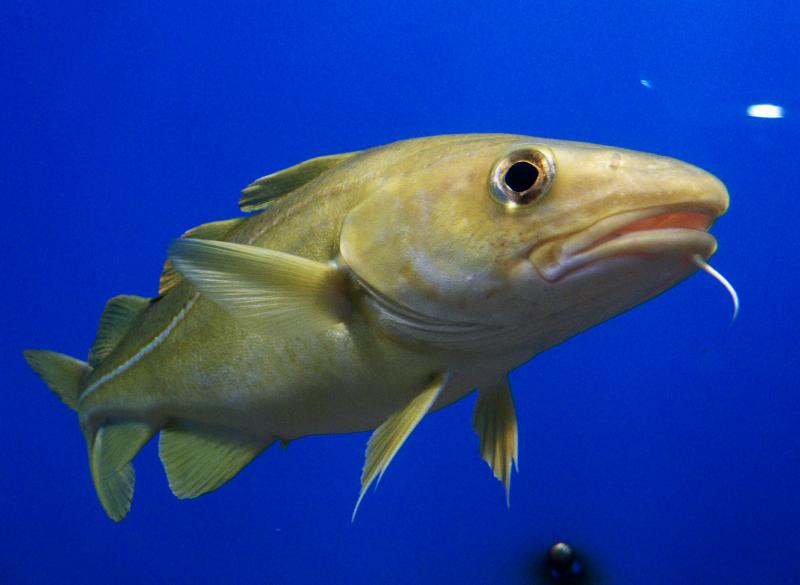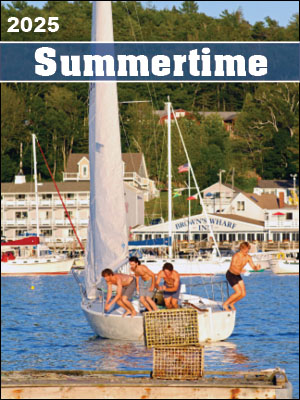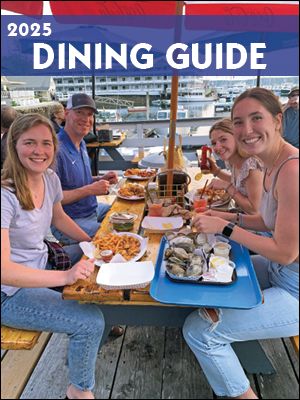With cod off the table, anglers on the hook
When the National Oceanic and Atmospheric Administration's National Marine Fishery Service put stricter limits on the amount of cod commercial fishing boats can catch, it was a hammer-blow to an industry that has seen catch allotments dwindle as fish apparently disappeared.
But for the smaller boats, the move to protect cod through rolling closures and zero-possession rules could prove to be a death knell for Maine's party and charter fishing fleet, according to Captain Barry Gibson, chairman of the New England Fishery Management Council Recreational Advisory Board.
Gibson, of East Boothbay, said Wednesday via telephone that the new regulations handed down by the National Oceanic and Atmospheric Administration National Marine Fisheries Service (NMFS) on Nov. 10 would ban fishing from certain areas at certain times; and because NMFS projects that three out of every ten cod caught will die while being released back into the water, that means there will be a no-possession rule for recreational fishing boats.
And no cod means no business, Gibson said.
“Cod has always been the driver for the recreational fishing industry,” he said. “When I came up here in 1968, there were five or six party boats right in town that would take as many as 30 or 40 people to go fishing for cod. There was some really good cod fishing a few miles off Boothbay Harbor and people came from all over the world and all over the country to fish here. People would leave with coolers and coolers full of cod.
“Cod was the impetus for the fishing season. I don't think there will be a lot of people interested in paying $1,200 to $1,400 a day to go fishing and then being told they can't keep one.”
Four years ago, the recreational fleet was dealt a blow when it came to the number of cod allowed to be hooked, and the size of the fish being caught. The new measures go well beyond those original limitations, Gibson said.
“Four years ago we went from a minimum of 18 inches to 21 inches (per cod),” Gibson said. “There was also a daily bag limit, which was nine fish per person. Now, that number is zero.”
The monthly rolling black-outs of the fishing grounds go south-to-north as the cod migrate up the coast and spawn, meaning fishing boats aren't allowed to drop a jig in the water during a black out.
“It's draconian,” he said. “They don't want anyone fishing (in the blacked-out areas). If you want to transit a closed area you have to have rods and reels stowed in a way that complies with federal regulations. This is the first time I've ever seen a prohibition on the possession of recreational fishing tackle used as a management tool in New England waters.”
Gibson said a number of Massachusetts fishermen have already sold their boats and have moved away from charters and sport fishing. Others, Gibson said, will seek to fish outside of the black-out areas, by either skirting along the coast or going further out to sea in order to reel in haddock, pollock or hake.
The Fishery Management Council will come up with a management plan, then that plan will be submitted to NFMS, which will have final say in the its approval and implementation.
But Gibson said the plan that will be in place in May and the plan that was recently handed down in November will likely look very similar.
Gibson said the Fishery Management Council's plan, called Framework 53, will address some of the issues raised with the emergency plan, but some of the larger sticking points, such as the zero possession rule, would be likely to stay.
If the root cause of the lack of cod is overfishing, then a break could help the species, Gibson said.
But if the cause is the warming of the Gulf of Maine's water, or some other unforeseen problem, then the problem wouldn't be solved by shelving rods and reels or implementing the 200-pound commercial catch rule, Gibson said.
“The cod stocks in Newfoundland collapsed in the 1990s and they haven't really come back (despite a ban on fishing for cod),” he said. “However, we have seen some fish, like haddock, come back in a big way. So maybe cod will come back.”
While the fishing grounds wait for the return of the species, anglers might cast their lines elsewhere, Gibson added.
“The silver lining would be if the cod return,” he said. “But but if they return two, three, four years down the road, will the people return, too? You can still go south of the Cape (Cod) and catch cod and a lot of other species too, so will these people come back (to Maine) if the cod stock rebuilds itself?”
Event Date
Address
United States





























